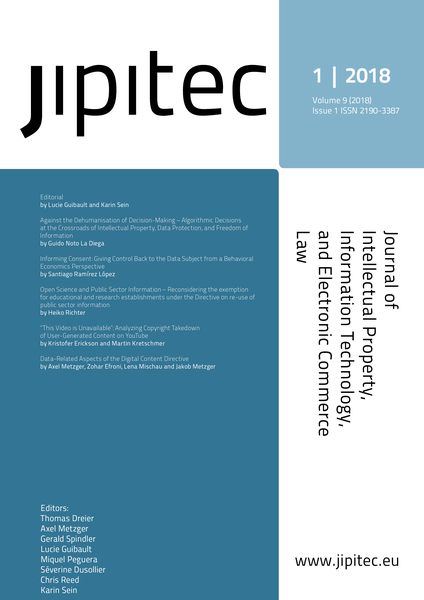Informing Consent: Giving Control Back to the Data Subject from a Behavioral Economics Perspective
Keywords:
Behavioral economics, Data Privacy, Data Protection, General Data Protection Regulation, Informational self-determination, Informed consentAbstract
The development of data privacy legislation in Europe and America has been highly influenced by the idea that individuals must maintain the autonomy to take decisions regarding the general purpose and uses of their personal data; an idea that has been generally instrumentalized with the mechanism of informed con-sent. Recently, both companies and researchers in the field have criticized this idea, arguing that with the new advances and technological progress, consent has lost importance due to the ubiquity of the data processing and the absence of real participation of the data subjects. This article seeks to take into account both points of view, by recognizing the importance of the autonomy of individuals to determine the destination of their personal data, but also by understanding the practical implications and the impossibilities derived from obtaining an informed consent from data subjects that are generally unfamiliar with the topic. Based on the analyses regarding the difficulties of obtaining an effective and informed consent, this contribution will examine how some of the bias and impasses stud-ied through the discipline of behavioral economics may help us to understand the current problems in relation to the way in which consent is requested and provid-ed by the data subjects. This contribution concludes by proposing alternatives that seek to overcome these biases and impasses with an easier provision of infor-mation of the data processing and the implementation of a data management and a value-oriented model, which would benefit the data subjects.Published
2018-05-23
Issue
Section
Artikel

